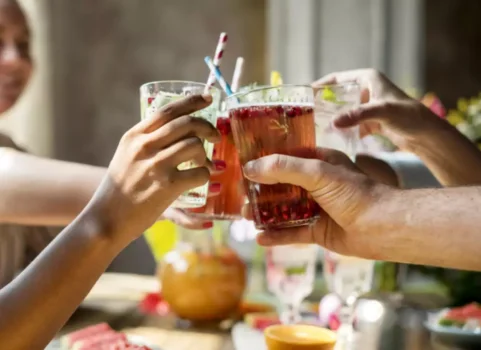Group Therapy & Activities for Substance Use Recovery
13.09.2022
A 1-page worksheet for identifying things to be grateful for in different life areas. A to-do list of kind deeds with blank spaces to write in your own ideas for spreading kindness. A 2-page handout with journal prompts for recovery, based on material group activities for addiction recovery from The Sober Survival Guide (created with the author’s permission). The prompts include questions about values, potential, expectations, and more. Check out our blog posts and resource links for the latest information on substance abuse.
- There are many benefits that can occur within a group setting which includes reducing isolation.
- Topics include goals, values, emotions, relationships, spirituality, and more.
- Remember, recovery is not just about leaving rehab; it’s about building a new, fulfilling life.
- Challenging the efficacy of treatment (or you as a clinician) is a defense mechanism.
- The key here is to ensure that the participants feel at ease and are encouraged through their energetic involvement in various activities.
Why are recovery group activities important in the healing process?

A 1-page worksheet for identifying things that promote addiction and ways to get rid of or avoid these things. A 3-page worksheet for substance use recovery for planning leisure activities and enhancing wellness/spirituality. A 1-page worksheet for affirmations, positive self-talk, and problem-solving strategies for daily challenges. A shared bucket list that includes spaces to write in when an item was added to the list and when it was completed. A 3-page worksheet for couples to create a shared list of meaningful “bucket list” items to do together.
Discussing Triggers
Participants can try making gratitude lists or having open discussions on ways to find and show gratitude in daily life. Practicing gratitude has proven benefits for mental and physical health, and it can boost recovery by helping people focus on the positives. In order to keep participants engaged and focused, leaders may offer different activities during sessions.

HealingUS Communities
The therapist can enact the scene with group members and help the teen practice taking a stand for himself in a real-life situation. Practicing refusal skills through role-playing is a dynamic way to prepare participants for real-world situations where they might be tempted to use substances. By simulating scenarios involving peer pressure or social settings, participants can practice assertively declining offers of drugs or alcohol. These activities build confidence, enhance communication skills, and empower individuals to prioritize their recovery goals. There is help available to you if you or a loved one has a physical dependence or psychological dependence on a behavior or substance.
Download Your Free Worksheets
If a group member wants to talk about it, ask them to limit their share to how it made them feel, but stress that it’s not okay to talk about an absent group member. (“How would you feel if we talked about you when you weren’t here?”) Strongly suggest that they wait until the person returns (and is open) to have a group discussion (if appropriate). Avoid power struggles at all costs, especially when a client challenges the benefits of treatment. Challenging the efficacy of treatment (or you as a clinician) is a defense mechanism. If the group is relatively healthy, you may want to illicit feedback from other group members before responding.

Therapy Worksheets

Therapists who run these groups are very resourceful and in order to keep the process relatively fresh introduce different activities and topics continually. Much like journaling, doing some form of stream-of-consciousness writing can greatly help people with processing thoughts that may be troubling them. Peer recovery groups, like Alcoholics Anonymous (AA) and other 12-step groups, are peer-led, non-professional options for building a support system during recovery.
- A template for tracking attendance, cases discussed, and any other group topics.
- Supply small cardstock posters and glue sticks for each client, along with shared markers When the clients enter, give each client a cardstock poster.
- That’s why most addiction treatment centers offer support groups and group therapy.
- Most people getting treatment for substance use disorder benefit from using both group and individual therapy.
- Each participant takes turns sharing three statements about themselves, two of which are true and one that is false.
A 2-page worksheet for identifying things that are controllable versus things that can’t be controlled. A 2-page handout that describes seven uncommon grief experiences, such as delayed or disenfranchised grief. A list with links to online grief support groups, forums, and communities. A 2-page handout with nine creative and soothing outlets for grief, such as music, dance, light therapy, and aromatherapy. A 1-page handout with 25 quotes from the Dalai Lama on topics such as kindness and happiness. A 1-page DBT-based handout with 25 examples of dialectics (i.e., two things that seem opposite and are at the same time both true).